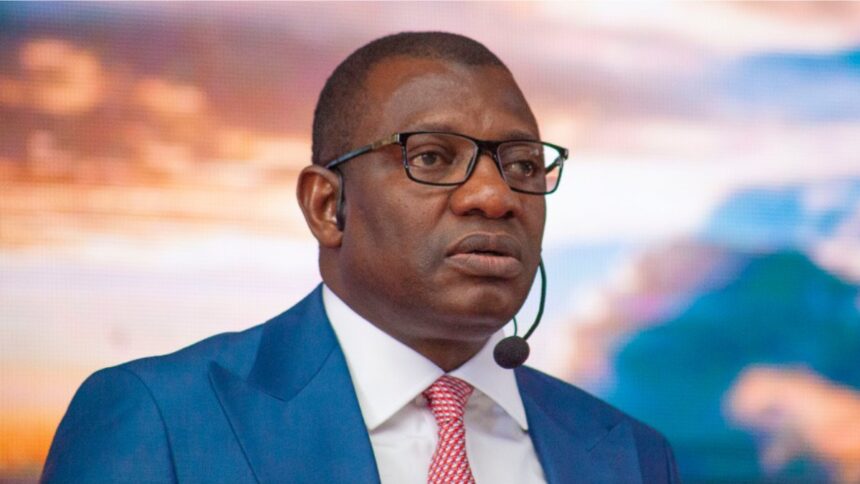In Nigeria’s fast-evolving digital landscape, philanthropy is beginning to converge with technology in new and impactful ways. One notable figure leading this shift is Dr. Bala Maijama’a Wunti, founder of the Wunti Alkhair Foundation (WAKF), whose initiatives are equipping young Nigerians with the tools to thrive in a technology-driven economy.
Rather than confining his influence to boardrooms in the oil and gas industry, Wunti has chosen to extend his reach into communities where education, digital skills, and human capital remain underdeveloped. His work offers a glimpse into how private initiatives can help shape Africa’s digital future.
Dr. Bala Maijama’a Wunti hails from Bauchi State, where he laid the foundations of his formal education. He attended Government Science School, Toro (in Bauchi) for his secondary schooling, earning his WASSCE certificate. He later gained admission through the IJMB programme into Ahmadu Bello University (ABU), Zaria, where he completed a Bachelor’s degree in Chemistry.
Beyond his undergraduate studies, Dr. Wunti pursued further education and executive training. He holds a Master’s degree from Abubakar Tafawa Balewa University, Bauchi. To complement his technical and scientific training, he also attended prestigious programs abroad: the Advanced Management Program at Harvard Business School and a fellowship at the Blavatnik School of Government, University of Oxford.
Dr. Bala Wunti is widely respected for his contributions to Nigeria’s energy sector, but his vision goes beyond managing resources beneath the ground. Through the Wunti Alkhair Foundation, he has created a platform for human resource development—empowering individuals to adapt to a world where digital literacy is as crucial as access to clean water or electricity.
The Foundation began with humanitarian goals such as education, healthcare, and empowerment. Over time, however, it has expanded into initiatives that place technology and skills training at the center of its mission. For Wunti, true progress is not measured by physical infrastructure alone, but by the people equipped to sustain and innovate within it.
Tech as a Tool for Human Capital
Nigeria’s youth population is projected to be one of the largest in the world by 2050. Yet, limited access to ICT resources and training threatens to leave millions behind in the global digital race.
The Wunti Alkhair Foundation seeks to close this gap by establishing ICT training programs, workshops, and empowerment centers in Northern Nigeria. These platforms are not merely about coding or software—they are about providing digital survival skills: online communication, financial literacy through mobile tools, and the ability to participate in a global job market.
Crucially, the Foundation also invests in resource persons development. By training teachers, community leaders, and facilitators, Wunti ensures that knowledge is not centralized but instead cascades into communities. This multiplier effect builds long-term resilience, turning one trained educator into a catalyst for dozens more empowered individuals.
Stories of Transformation
While much of Nigeria’s tech narrative is dominated by urban hubs like Lagos, Wunti’s approach brings digital empowerment to areas often overlooked. Beneficiaries of the Foundation have gone on to secure employment, start businesses, or become trainers themselves.
These stories underline the reality that Nigeria’s digital economy cannot afford to leave Northern Nigeria behind. For many, Wunti’s programs provide a first interaction with structured technology training—an encounter that changes not only personal prospects but also community expectations.
Dr. Wunti’s work raises a significant question: should the responsibility of preparing Nigeria’s workforce for the digital age fall solely on government institutions? His Foundation illustrates how private initiatives can play a complementary role, filling gaps where policy and infrastructure often lag.
For policymakers, this model carries both lessons and warnings. The lesson: partnerships with private actors can accelerate human capital development. The warning: over-reliance on private philanthropy without broader systemic reform risks uneven development.
Why Africa Should Take Note
Africa’s digital economy is projected to add hundreds of billions of dollars to the continent’s GDP by 2030. But this projection depends on whether countries can equip their populations with the skills and access to participate in digital commerce, innovation, and governance.
If leaders across Africa follow the example of initiatives like Wunti’s, they can decentralize tech empowerment—ensuring that digital skills are not confined to elite circles but spread across towns and villages. However, if such models remain isolated, Africa risks widening the divide between the digitally literate few and the disconnected many.
The Wunti Alkhair Foundation’s vision is not framed in lofty slogans but in practical action: training one person, then training the trainers. The goal is sustainability rather than dependency.
As Nigeria stands at the crossroads of a global shift toward AI, automation, and digital economies, the question remains whether such efforts can be scaled. For Wunti, the answer lies in collaboration—between government, the private sector, and civil society. Without it, even the best-intentioned foundations cannot match the scale of the challenge.
Dr. Bala Maijama’a Wunti’s journey from energy executive to community-focused philanthropist underscores a crucial point: real wealth lies not in natural resources but in human capital. By focusing on technology and resource persons development, the Wunti Alkhair Foundation offers a model of how Nigerian leaders can anchor progress in people, not just infrastructure.
For a continent eager to leapfrog into the digital future, such models may prove indispensable. But the responsibility does not rest with one foundation alone—it rests with all stakeholders to ensure Africa’s digital rise is inclusive, sustainable, and driven by people empowered to create, not just consume.
Talking Points
Foundations like Wunti Alkhair are commendable for stepping into the tech and human capital development space, but here’s the catch—Africa does not lack foundations. What it lacks is consistency, transparency, and scalability. We’ve seen too many initiatives start strong, win applause, and then fizzle out.
The real question is: will this one last, or will it become another name in Nigeria’s long list of abandoned “youth empowerment” programs?
It is striking that private foundations keep filling the void where government institutions should lead. If Nigeria’s public sector truly believed in digital transformation, there would be a national framework making tech literacy compulsory in schools, not scattered interventions by philanthropists. Wunti Alkhair’s work should be applauded, but it also reveals a troubling failure of governance.
Tech stories from the continent often center on apps, startups, and flashy innovations. But in reality, without people trained, empowered, and connected, no app economy will thrive.
Wunti Alkhair’s focus on resource persons development is actually more revolutionary than building the next fintech app. It’s time Africa starts investing in human capital before unicorn hunting.





